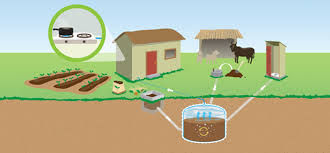Cue Card: Describe a place (library, museum, or theatre) you would like to visit. IIELTS Speaking Test Samples with Answers 2024 (UK )
IELTS Speaking Test Samples with Answers 2024 (UK) Cue Card: Describe a place (library, museum, or theatre) you would like to visit.
In this article we are going to add the Speaking Test Samples with Answers 2024 which was conducted in UK , one of the members of our IELTS WhatsApp group shared this with us recently. As questions are repeated from past examination questions, try to practice these new questions, they may come in your real test. here we are going to add the two sample answers to each question so that you can get a better idea about that question and how to make a sample answer on your own.
Speaking Test Samples with UK : First Sample Answers.
What is your name?
My name is [Your Name].
2. Where are you from?
I'm from [Your City/Town], [Your
Country].
3. Do you work or study?
I am currently
[working/studying].
4. Do you like your work? Why?
Yes, I do enjoy my work. I find
it [Reason for liking your work, e.g., fulfilling, challenging, rewarding].
5. How do you balance work and leisure in your life now?
I try to balance work and leisure
by [Strategies for balancing work and leisure, e.g., setting boundaries,
scheduling time for relaxation, pursuing hobbies].
6. What kind of things did you enjoy doing as a child?
As a child, I loved [Childhood
activities, e.g., playing outdoors, reading, drawing].
7. Did you have a happy childhood? Why?
Yes, I had a very happy
childhood. I was fortunate to have [Positive aspects of your childhood, e.g.,
loving parents, supportive friends, good experiences].
8. Did you have any childhood dreams about your future career?
As a child, I dreamed of becoming
a [Childhood dream career]. However, my interests and goals have changed over
time.
9. Did you help your parents with any kind of work when you were a child?
Yes, I used to help my parents
with [Household chores or other tasks].
10. Are there any skills you developed in your childhood that are useful to you today?
One skill I developed as a child that has been beneficial to me is [Skill]. It has helped me in [How the skill is helpful].
Speaking Test Samples with Answers 2024 Part 1, UK: 2nd Sample Answers.
What is your full name?
My name is [Your Name].
Where are you from?
I am from Karachi, Pakistan.
What do you do for a living?
I am a [Your Profession] at [Your Company].
How did you choose your current job or profession?
I chose this profession because [Reason for choosing your profession]. For example, I've always been interested in [Subject or field related to your profession], and I found this job to be a good fit for my skills and interests.
What do you enjoy most about your work?
I enjoy [Positive aspects of your job]. For instance, I like the [Specific aspect] of my work, and I find it very rewarding to [Achievement or contribution].
Are there any challenges you face in your job?
Yes, there are some challenges that I encounter in my job. For example, [Challenge 1] can be difficult to overcome, but I try to [How you deal with the challenge].
Do you think you will continue working in this field in the future?
Yes, I do see myself continuing to work in this field in the future. I am passionate about [Subject or field] and believe that there are many opportunities for growth and development within this profession.
How do you balance your work and personal life?
I try to maintain a good balance between my work and personal life by [Strategies for balancing work and personal life]. For example, I prioritize [Specific activities or time for yourself] to avoid burnout and maintain a healthy work-life balance.
If you could change one thing about your job, what would it be?
If I could change one thing about my job, it would be [Desired change]. This would [Benefit or improvement] and make my work experience even more fulfilling.Click on the following links for the PDF book
My name is [Your Name].
I chose this profession because [Reason for choosing your profession]. For example, I've always been interested in [Subject or field related to your profession], and I found this job to be a good fit for my skills and interests.
I enjoy [Positive aspects of your job]. For instance, I like the [Specific aspect] of my work, and I find it very rewarding to [Achievement or contribution].
Yes, I do see myself continuing to work in this field in the future. I am passionate about [Subject or field] and believe that there are many opportunities for growth and development within this profession.
Click on the following links for the PDF book
- IELTS Pdf Books
- IELTS Listening Pdf Books
- IELTS Reading Pdf Books
- IELTS writing Pdf Books
- IELTS Writing Task 2 Pdf Books
- IELTS Speaking Pdf Books
- IELTS Grammar, Vocabulary Pdf Books
- Latest IELTS Speaking Test with Sample Answers
Speaking Test Samples with Answers 2024 Part 2, Cue Card: Describe a place (library, museum, or theatre) you would like to visit. Sample Answer.
Part 2 (Cue Card)
Describe a place (library, museum, or theatre) you would like to visit. You should say
- what place it is
- why you would like to visit it
- what you know about this place
and explain why this place is interesting to you.
Describe a place (library, museum, or theatre) you would like to visit. You should say
- what place it is
- why you would like to visit it
- what you know about this place
and explain why this place is interesting to you.
Sample Answer: Describe a place (library, museum, or theatre) you would like to visit.
What place it is:
The British Museum is one of the
largest and most famous museums in the world, home to a vast collection of
historical artifacts, art, and cultural treasures from various civilizations
across the globe.
Why you would like to visit it:
I would like to visit the British
Museum because it houses some of the most iconic and important artifacts in
history, such as the Rosetta Stone and the Elgin Marbles. These pieces hold
immense historical significance and are part of the cultural heritage of
various ancient civilizations. Visiting this museum would allow me to see
firsthand these rare and ancient objects that have shaped human history.
What you know about this place:
I know that the British Museum
was established in 1753 and has since grown to house millions of artifacts from
nearly every period of human history, including ancient Egypt, Greece, Rome,
and beyond. The museum’s collection spans from prehistoric times to modern
history, and its exhibits include sculptures, manuscripts, art, and tools that
offer a glimpse into different cultures.
Why this place is interesting to
you:
The British Museum is interesting
to me because it offers a unique opportunity to explore the rich history of
civilizations from all over the world under one roof. I am particularly
fascinated by ancient history, and seeing objects like the mummies from Egypt
or the Parthenon sculptures in person would be a deeply educational and
awe-inspiring experience. The museum also represents a deep connection to
global heritage and history, allowing visitors to reflect on how humanity has
evolved across centuries.
The British Museum is one of the largest and most famous museums in the world, home to a vast collection of historical artifacts, art, and cultural treasures from various civilizations across the globe.
I would like to visit the British Museum because it houses some of the most iconic and important artifacts in history, such as the Rosetta Stone and the Elgin Marbles. These pieces hold immense historical significance and are part of the cultural heritage of various ancient civilizations. Visiting this museum would allow me to see firsthand these rare and ancient objects that have shaped human history.
I know that the British Museum was established in 1753 and has since grown to house millions of artifacts from nearly every period of human history, including ancient Egypt, Greece, Rome, and beyond. The museum’s collection spans from prehistoric times to modern history, and its exhibits include sculptures, manuscripts, art, and tools that offer a glimpse into different cultures.
The British Museum is interesting to me because it offers a unique opportunity to explore the rich history of civilizations from all over the world under one roof. I am particularly fascinated by ancient history, and seeing objects like the mummies from Egypt or the Parthenon sculptures in person would be a deeply educational and awe-inspiring experience. The museum also represents a deep connection to global heritage and history, allowing visitors to reflect on how humanity has evolved across centuries.
Speaking Test Samples with Answers 2024 Part 2, Cue Card: , 2nd Sample Answer:
Part 2 (Cue Card)
Describe a place (library, museum, or theatre) you would like to visit. You should say
- what place it is
- why you would like to visit it
- what you know about this place
and explain why this place is interesting to you.
Sample Answer:
As a history enthusiast, the
National Archives and Records Administration in Washington, D.C., is a place
I've always dreamed of visiting. It's a vast repository of historical documents
and records, dating back centuries.
I'm particularly interested in
exploring the Presidential Records, which include everything from speeches and
memos to personal correspondence. I've heard about the Declaration of
Independence and the Constitution being housed there, and the thought of seeing
these iconic documents in person is truly awe-inspiring.
Beyond the historical
significance, the National Archives also offers a glimpse into the workings of
the American government. I'm curious to learn more about how laws are made, how
policies are implemented, and how the country has evolved over time. Visiting
this institution would be a unique opportunity to connect with the past and
gain a deeper understanding of American history and governance.
As a history enthusiast, the
National Archives and Records Administration in Washington, D.C., is a place
I've always dreamed of visiting. It's a vast repository of historical documents
and records, dating back centuries.
I'm particularly interested in
exploring the Presidential Records, which include everything from speeches and
memos to personal correspondence. I've heard about the Declaration of
Independence and the Constitution being housed there, and the thought of seeing
these iconic documents in person is truly awe-inspiring.
Beyond the historical
significance, the National Archives also offers a glimpse into the workings of
the American government. I'm curious to learn more about how laws are made, how
policies are implemented, and how the country has evolved over time. Visiting
this institution would be a unique opportunity to connect with the past and
gain a deeper understanding of American history and governance.
Related Post:
- https://helpinghandsnew.blogspot.com/2024/10/cue-card-describe-new-law-you-would.html
- Cue Card: Talk about a new food that you would like to try. I IELTS Speaking Test Samples with Answers 2024 (INDIA )
- Cue Card: Talk about an important home appliance that is used daily in your family. I IELTS Speaking Test Samples with Answers 2024 (India )
- Cue Card: Talk about a place where you usually go to relax. I IELTS Speaking Test Samples with Answers 2024 (Zimbabwe )
- Cue Card: Describe a painting that you like. I IELTS Speaking Test Samples with Answers 2024 (Turkey )
- Cue Card: Talk about a uniform you had to wear. I IELTS Speaking Test Samples with Answers 2024 (Canada)
- Cue Card: Describe an event in your life that changed it in a positive way I IELTS Speaking Test Samples with Answers 2024 (PAKISTAN)
IELTS LISTENING MCQ COMPLETE PRACTICE TEST IELTS LISTENING TEST
Speaking Test Samples with Answers 2024 IELTS Speaking Part 3: 1st Sample Answers .

.jpg)


.webp)










